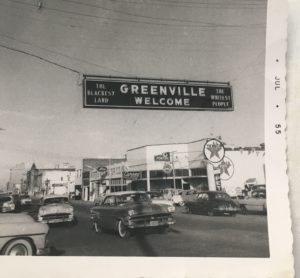 Look at these seven words and phrases: evidence-based, science-based, vulnerable, diversity, entitlement, transgender and fetus.
Look at these seven words and phrases: evidence-based, science-based, vulnerable, diversity, entitlement, transgender and fetus.
What’s the association?
Some of them could make a great focal word for 2018. For example, a leader who wants to be more vulnerable or a writer who wants his or her work to be evidence-based or science-based.
As advocated by oneword365.com, this is the one word you “focus on every day, all year long…One word that sums up who you want to be or how you want to live.”
Some of these words and phrases also could be from almost any company’s internal communication, addressing how a for-profit company goes about its business. For example, many companies strive to:
- Be evidence-based.
- Practice diversity.
- Protect the rights of their transgender employees.
- Provide pregnancy benefits for an expectant mother and her fetus.
Instead, these seven words and phrases are from a list of forbidden words.
As reported by the Washington Post on Dec. 15, the Trump Administration is prohibiting officials at the Center for Disease Control and Prevention, the top US public health agency, from using these words and phrases in official documents for next year’s federal budget.
In some instances, according to the article, the Trump administration has provided alternate phrasing. Instead of referring to “science-based” or “evidence-based,” the CDC policy analysts are to use these 13 words: “CDC bases its recommendations on science in consideration with community standards and wishes.”
Switching out two words for 13 is not exactly succinct, clear or compelling.
And why in an age of greater transparency and a greater commitment to plain language do government officials have to be so indirect and roundabout in their language?
And since when does the government actively advocate censoring instead of uphold citizens’ rights of free speech under the First Amendment?
After the initial uproar over the weekend, a spokesman from the Department of Health and Human Services, which oversees the CDC, pushed back saying there was no “banned words” list, as reported by STAT News, which reports on health and medicine, which last I checked were “science-based fields.”
But just because a spokesman denies that HHS has handed down a list of banned words doesn’t mean they’re encouraging health care professionals to use the most accurate words in their communication.
Instead, this action may have the consequence – intended or otherwise – to erode the confidence and courage of health care professionals and sway them to practice self-censorship.
Self-censorship for such basic words and phrases could spill over into other walks of life and contribute to adverse impacts.
For example, think of the possibility of health care changes in funding and delivery that can harm patients and the public at large.
Consider the downside of more communication with convoluted, tortured language that obscures meaning and wastes people’s time, energy and word counts when they try to decipher the language.
And don’t discount the social pain of those whose identity is associated with those words. To what extent are they going to feel marginalized – or even more disregarded than they already are?
With situations like this unfolding, it can be hard to remember and appreciate that we have made progress over the past half century.
Earlier this month my dad showed me the photo pictured above from a July 1955 business trip.
While driving through Texas, about 50 miles south of the Oklahoma-Texas border north of Dallas, he took this picture of the then famous sign in Greenville, Texas.
The sign’s language was open to interpretation.
“The Blackest Land” on the left referred to Greenville’s rich soil for growing cotton. Others, like my dad who was in the energy business, wondered if the term also described oil, since its nickname was black gold.
“The Whitest People” on the right was meant to include everyone, regardless of race, according to the locals. However, racial overtones existed.
It’s hard to imagine anyone tolerating a sign like that today, especially a major corporation such as Chevron, the second-biggest oil and gas producer in the United States, which now owns Texaco.
Nonetheless, this sign and these seven banned words and phrases are a good reminder that those of us who care about using language accurately and with decency need to remain vigilant.
What examples do you have of language that requires courage to use?

0 Comments